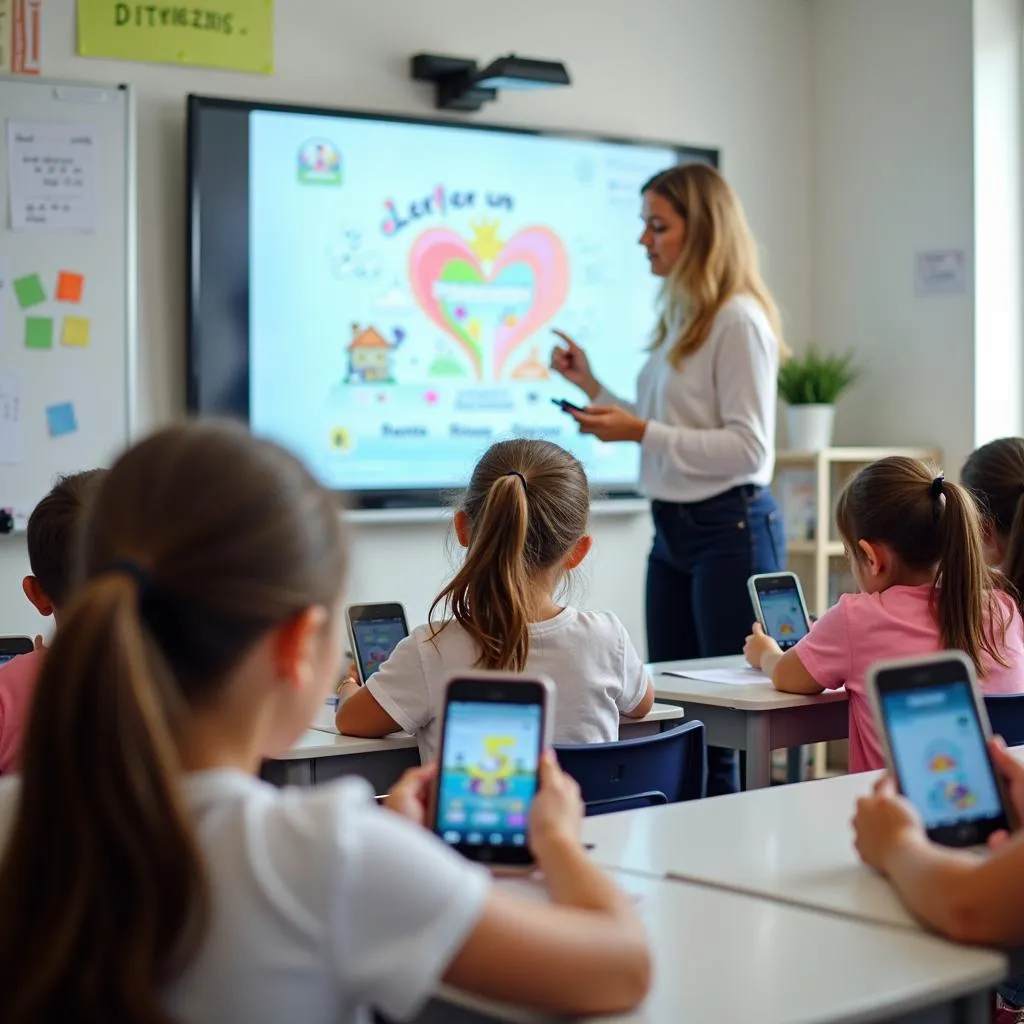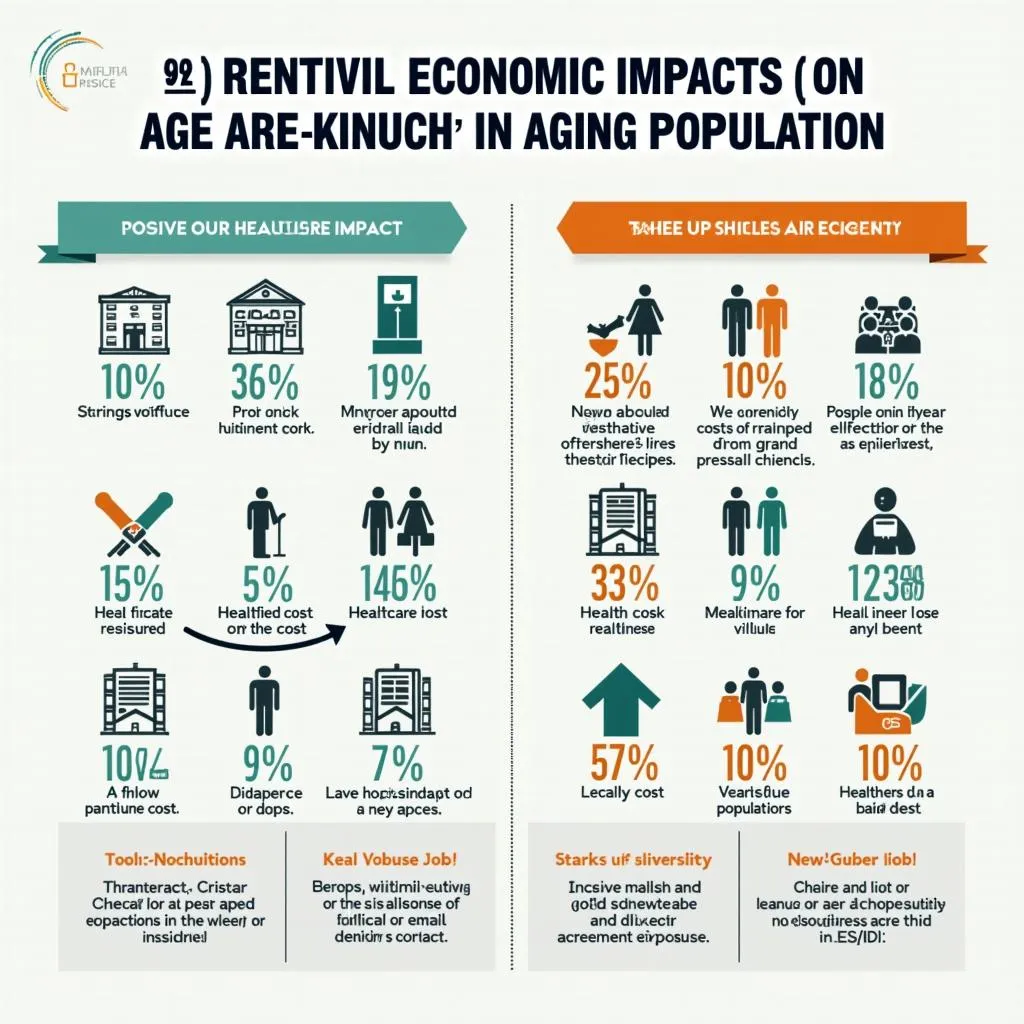The topic of children using smartphones is increasingly relevant in today’s digital age and has become a common theme in IELTS Writing Task 2 essays. This subject combines elements of technology, education, and social development, making it a versatile and thought-provoking topic for test-takers. Based on recent trends, we can expect this theme to appear frequently in future IELTS exams.
Nội dung bài viết
Let’s examine a sample question that reflects the complexity of this issue:
Some people think that children should not be allowed to use smartphones, while others disagree. Discuss both views and give your own opinion.
Analyzing the Question
This question requires candidates to:
- Discuss arguments for and against children using smartphones
- Present their own opinion on the matter
- Support their points with relevant examples and explanations
It’s crucial to address all parts of the question to achieve a high band score. Now, let’s look at sample essays for different band scores.
Sample Essay 1 (Band 8-9)
The proliferation of smartphones among children has sparked a heated debate about their potential benefits and drawbacks. While some argue that children should be prohibited from using these devices, others believe they can be valuable tools for learning and communication. In my opinion, while there are valid concerns, supervised and limited use of smartphones can be beneficial for children’s development.
Those who oppose children’s use of smartphones often cite concerns about addiction, reduced face-to-face interaction, and exposure to inappropriate content. They argue that excessive screen time can lead to social isolation and hinder the development of crucial interpersonal skills. Moreover, there are valid worries about cyberbullying and online predators, which can pose serious threats to children’s safety and well-being.
On the other hand, proponents of allowing children to use smartphones point out the educational benefits and practical advantages these devices offer. Smartphones can provide access to a wealth of information, educational apps, and interactive learning tools that can supplement traditional education. Additionally, they argue that familiarity with technology from an early age can prepare children for a increasingly digital world, enhancing their future career prospects.
The impact of technology on communication is undeniable, and smartphones play a significant role in this transformation. While I acknowledge the potential risks, I believe that with proper guidance and restrictions, children can reap the benefits of smartphone use while minimizing the drawbacks. Parents and educators should implement clear rules about usage time, monitor content, and teach children about online safety and responsible digital citizenship.
In conclusion, the issue of children using smartphones is complex and multifaceted. While there are legitimate concerns, the potential benefits cannot be ignored. By striking a balance between access and control, we can harness the power of these devices to enhance children’s learning and development while safeguarding their well-being.
(Word count: 309)
 Children using smartphones in a classroom setting
Children using smartphones in a classroom setting
Sample Essay 2 (Band 6-7)
The use of smartphones by children is a topic that many people have different opinions about. Some think it’s bad for kids to have smartphones, while others think it’s okay. I will discuss both sides and give my own thoughts.
People who don’t want children to use smartphones worry about several things. They think kids might spend too much time on their phones and not enough time playing outside or talking to friends in person. There’s also a risk of children seeing bad things on the internet or talking to strangers online, which can be dangerous. Some people believe that using phones too much can hurt children’s eyes and make it hard for them to sleep well.
On the other hand, some people think smartphones can be good for children. These devices can help kids learn new things because there are many educational apps and websites. Smartphones also let children stay in touch with their parents, which can be important for safety. Some argue that learning to use technology early will help children in the future when they need to use computers for work.
I think that children can use smartphones, but there should be rules. Parents should limit the time kids spend on phones and check what they’re doing online. It’s important to teach children how to use phones safely and responsibly. If used correctly, smartphones can be helpful tools for learning and staying connected with family.
In conclusion, while there are risks to children using smartphones, there are also benefits. The key is to find a balance and make sure children use these devices in a safe and helpful way.
(Word count: 269)
Sample Essay 3 (Band 5-6)
Nowadays, many children have smartphones. Some people think this is good, but others think it is bad. I will talk about both sides and give my opinion.
Some people say children should not have smartphones. They think phones are bad for kids. Children might play games all day and not do homework. Also, there are bad things on the internet that children should not see. Some people worry that phones will make children’s eyes hurt.
But other people think smartphones are good for children. Kids can learn new things with educational apps. They can also call their parents if they need help. Some people say using phones will help children learn about technology, which is important for the future.
I think children can have smartphones, but parents need to be careful. They should check what their children do on phones. Parents should also make rules about when and how long children can use phones. It’s important to teach children how to use phones safely.
In conclusion, smartphones can be good or bad for children. It depends on how they are used. If parents are careful, smartphones can help children learn and stay safe.
(Word count: 183)
Explanation of Band Scores
Band 8-9 Essay:
- Fully addresses all parts of the task with a well-developed response
- Presents a clear position throughout the essay
- Uses a wide range of vocabulary and complex sentence structures
- Organizes ideas coherently and uses cohesive devices effectively
- Provides relevant examples and explanations to support arguments
Band 6-7 Essay:
- Addresses all parts of the task, but some aspects are more fully developed than others
- Presents a clear overall position
- Uses an adequate range of vocabulary and mix of simple and complex sentences
- Organizes information coherently but may lack some fluency
- Provides some examples and explanations, but they may not always be clearly relevant
Band 5-6 Essay:
- Addresses the task but may not cover all aspects equally
- Expresses a position but development may be limited
- Uses a limited range of vocabulary and simple sentence structures
- Has some organization but lacks overall coherence
- Provides minimal examples and explanations
 Parent supervising child using a smartphone
Parent supervising child using a smartphone
Key Vocabulary to Remember
- Proliferation (noun) /prəˌlɪf.əˈreɪ.ʃən/ – rapid increase in the number or amount of something
- Cyberbullying (noun) /ˈsaɪ.bər.bʊl.i.ɪŋ/ – the use of electronic communication to bully a person
- Interpersonal (adjective) /ˌɪn.tərˈpɜː.sən.əl/ – relating to relationships or communication between people
- Multifaceted (adjective) /ˌmʌl.tiˈfæs.ɪ.tɪd/ – having many different aspects or features
- Digital citizenship (noun phrase) /ˈdɪdʒ.ɪ.təl ˈsɪt.ɪ.zən.ʃɪp/ – the responsible use of technology by anyone who uses computers, the Internet, and digital devices
- Harness (verb) /ˈhɑːr.nɪs/ – to control and use the force or strength of something to produce power or to achieve something
- Supplement (verb) /ˈsʌp.lɪ.ment/ – to add something to improve or complete something else
- Proponents (noun) /prəˈpəʊ.nənts/ – people who support or promote something
In conclusion, the topic of children using smartphones is likely to remain relevant in IELTS Writing Task 2. To prepare, practice writing essays on related themes such as:
- The impact of social media on children’s social skills
- The role of technology in modern education
- Balancing screen time and outdoor activities for children
- The responsibilities of parents in the digital age
We encourage you to practice writing your own essay on this topic and share it in the comments section below. This active practice will help you improve your writing skills and prepare effectively for the IELTS exam.


